2016年中考英语(外研版)课本梳理第4讲 七年级(下) Modules 7~12
文档属性
| 名称 | 2016年中考英语(外研版)课本梳理第4讲 七年级(下) Modules 7~12 | 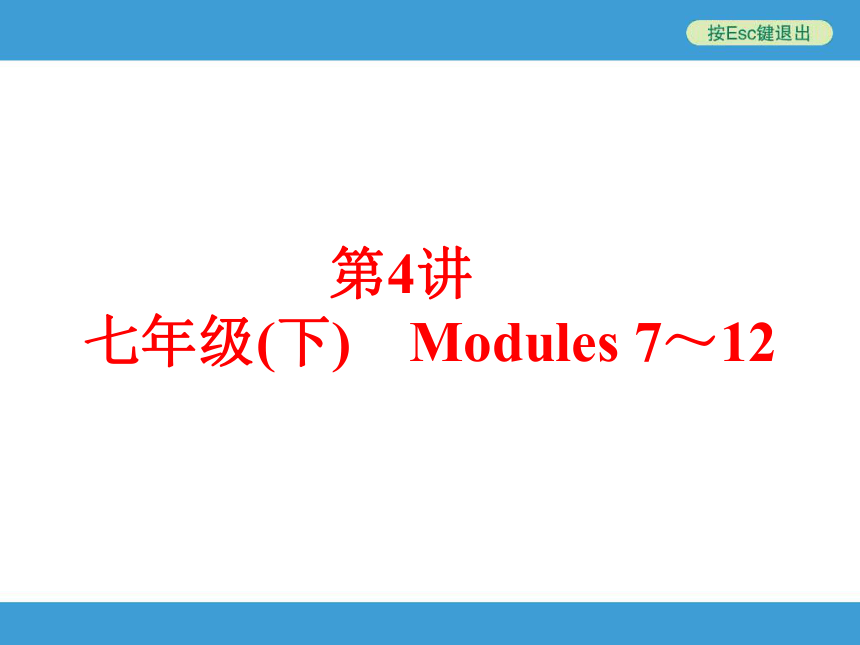 | |
| 格式 | zip | ||
| 文件大小 | 1.2MB | ||
| 资源类型 | 教案 | ||
| 版本资源 | 外研版 | ||
| 科目 | 英语 | ||
| 更新时间 | 2015-11-28 17:37:54 | ||
图片预览

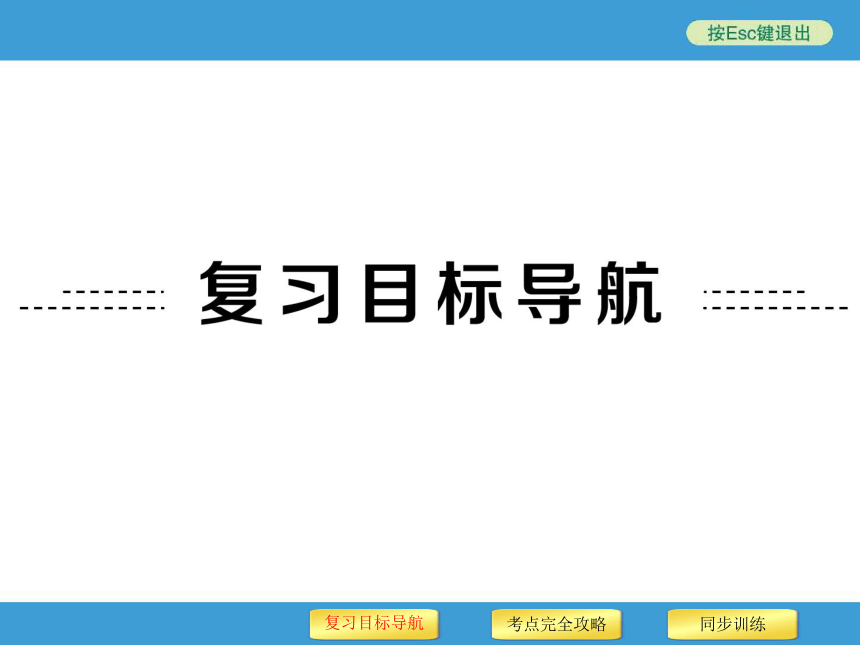
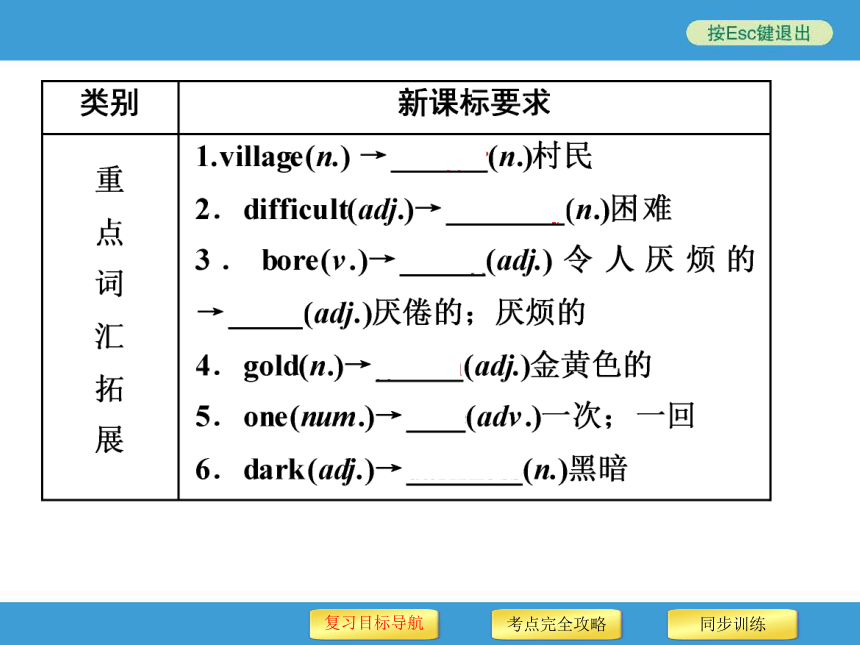
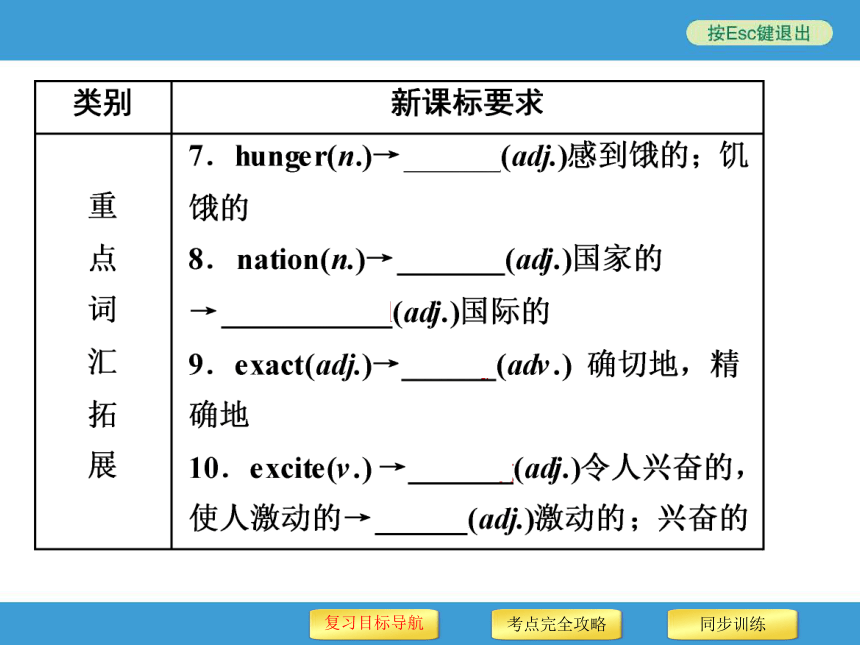
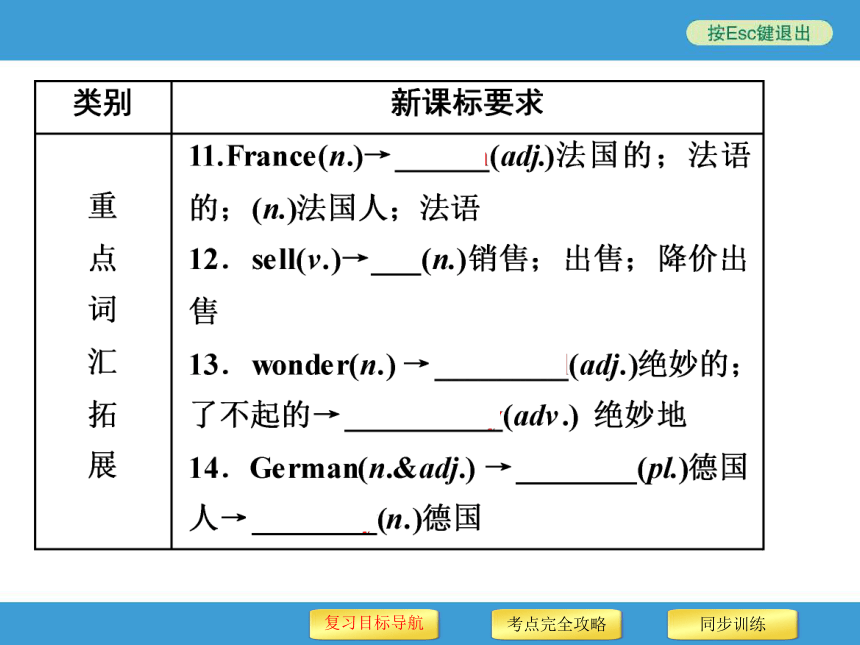
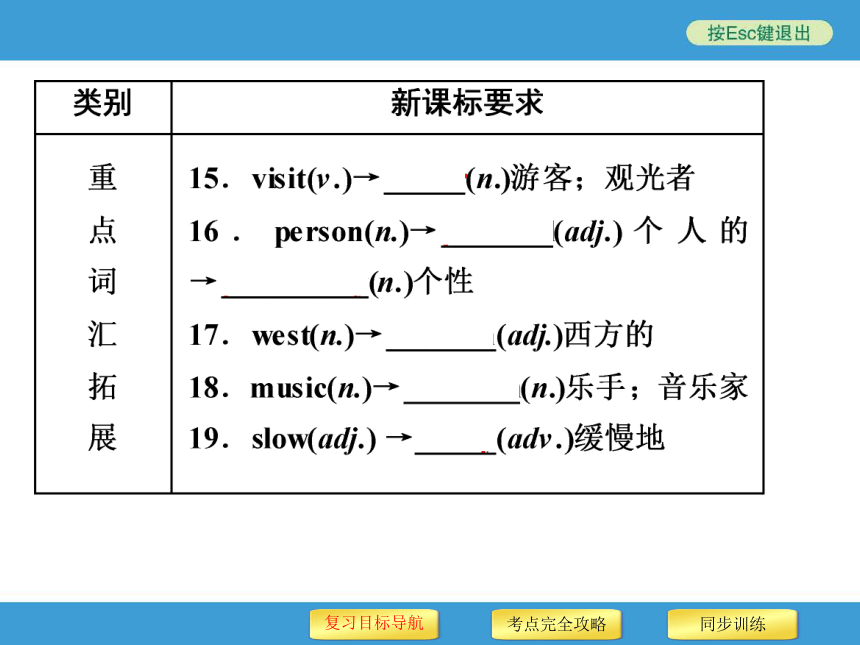
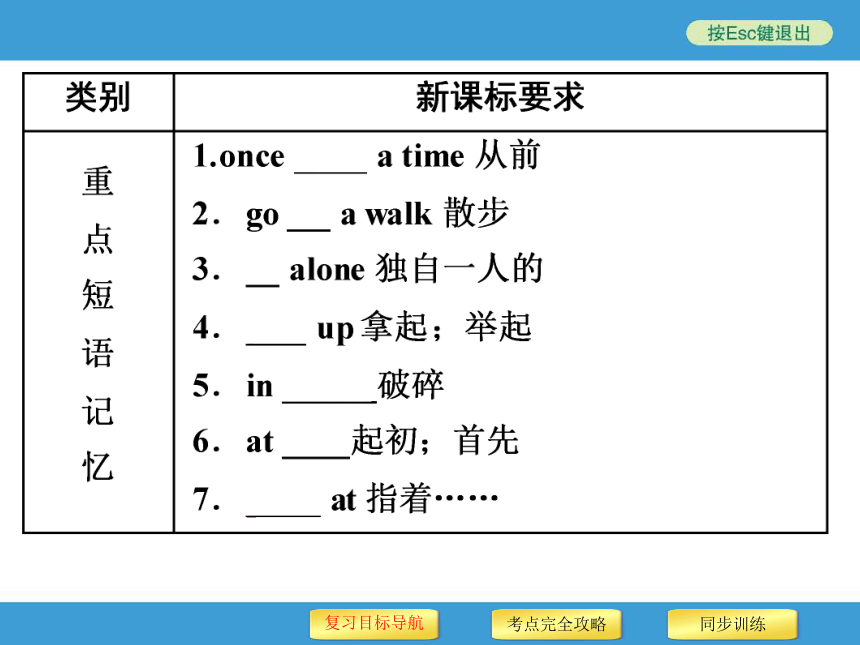
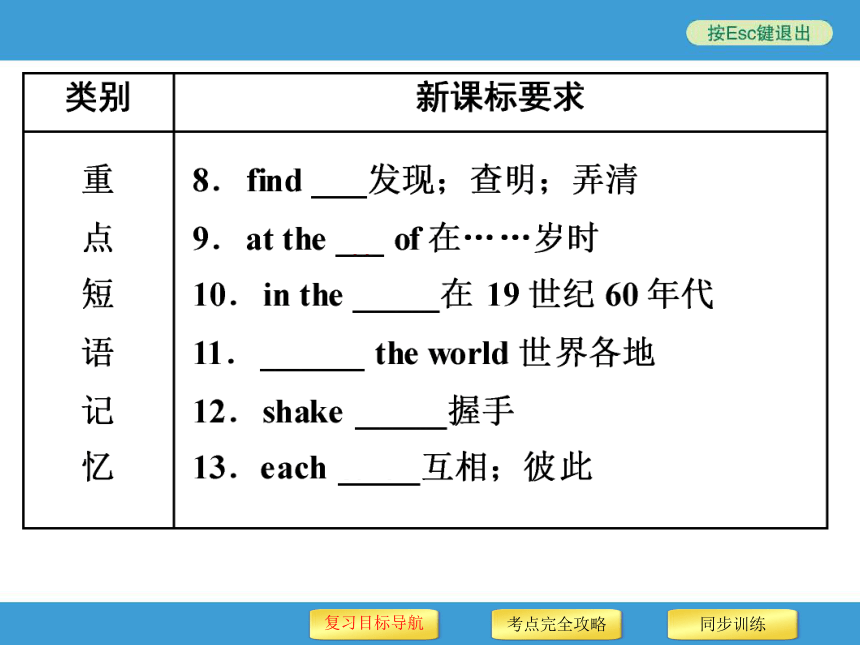
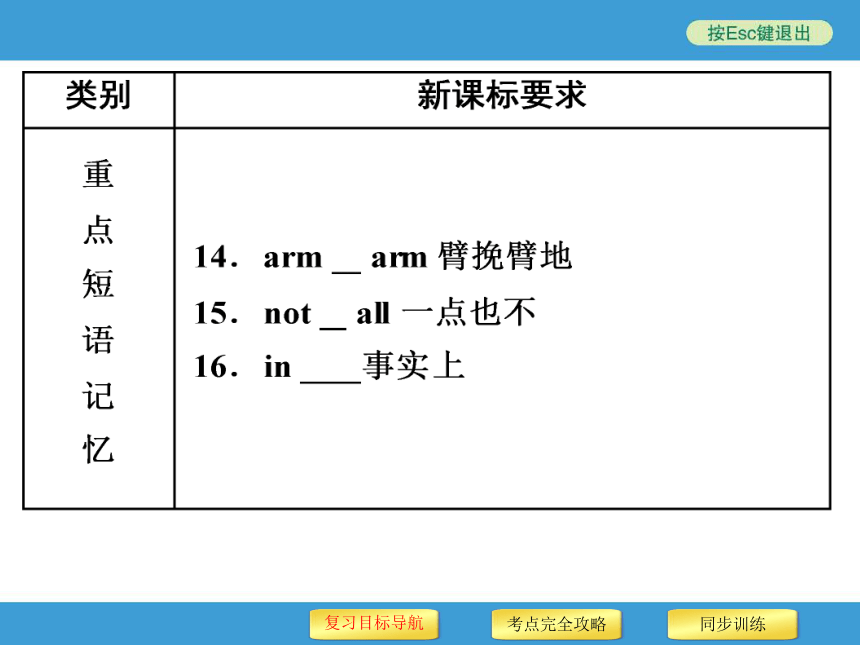
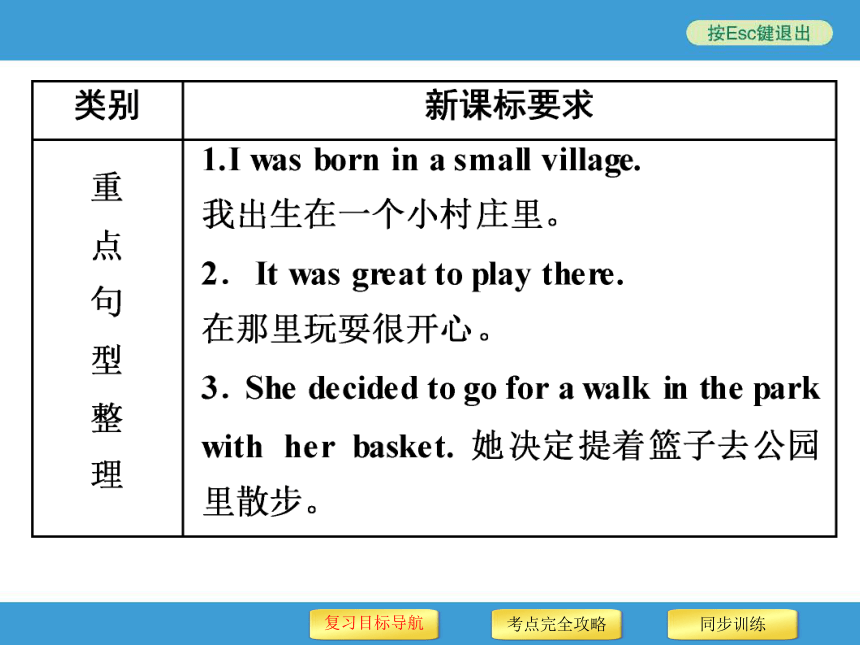
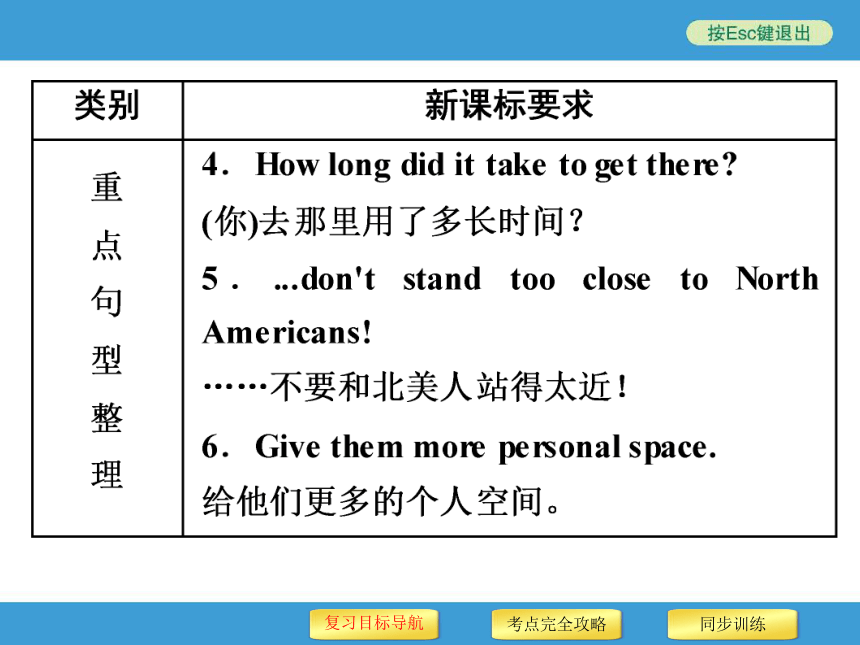
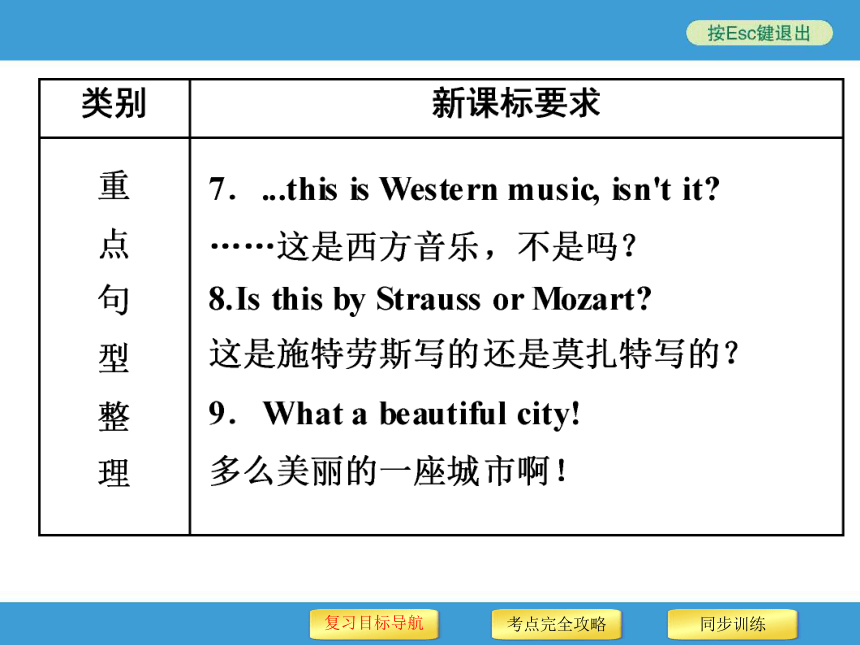
文档简介
课件78张PPT。第4讲
七年级(下) Modules 7~12同步训练综合能力提高
一、单项选择(10分)
1.(2015·安徽)We can't do it that way—but whether it will work is ________ matter.
A.other B.another C.each D.every
【解析】考查代词辨析。句意为“我们不能那样做——但那样做是否有效则是另一回事”,another泛指“三者或三者以上中的另一个”,符合语境。故选B。
答案:B2.The students from Xinjiang enjoy staying in our school because everyone is ________ to them.
A.friendly B.gently
C.happily D.politely
【解析】考查形容词和副词的词义辨析。四个选项中只有friendly是形容词,be friendly to sb.意为“对某人友好”。故答案为A。
答案:A3.—Kelly, who's the girl ________ glasses in the photo?
—It's me. I used to wear glasses and have long hair.
A.by B.of C.on D.with
【解析】考查介词的用法。此处所缺的介词是with,the girl with glasses意为“戴眼镜的那个女孩”。故答案为D。
答案:D
4.(2015·长沙)—Jane Zhang is going to hold a concert here in July.
—Really? ________ exciting news!
A.How B.What an C.What
【解析】考查感叹句的用法。空格处修饰的中心词“news”是名词,应用what引导此感叹句,又因news不可数,所以不能用冠词an修饰。故选C。
答案:C5.Our teachers are very strict ________ us.
A.with B.to C.on D.in
【解析】考查固定搭配。be strict with sb.意为“对某人很严格”。
答案:A6. ________ the afternoon of June 2nd,many foreigners arrived ________ Shanghai.
A.In; at B.On; to C.In; in D.On; in
【解析】考查介词的用法。the afternoon of June 2nd是在具体的某一天,其前的介词要用on;由第二空后的Shanghai可推断要用in, arrive in意为“到达”,后接大的地方。
答案:D7.I ________ a mistake. Please don't be angry with me.
A.make B.made
C.will make D.had made
【解析】考查动词的时态。句意为“我犯了个错误。请不要生我的气”。由语境可知“犯错误”是过去的事情,所以要用一般过去时。
答案:B8.—Could you tell me when Mr Li ________ ?
—Sure. When he ________ , I'll call you.
A.arrives; will arrive B.will arrive; arrives
C.arrives; arrives D.will arrive; will arrive
【解析】考查动词的时态。第一空所在句是宾语从句,要用一般将来时;在含有时间状语从句的句子中,如果主句是一般将来时,从句要用一般现在时表将来。故第二空用一般现在时。
答案:B9.—Have you ever been to Beijing?
—Yes. Last month I ________ there.
A.have been B.went C.will go D.goes
【解析】考查动词的时态。由last month可知,要用一般过去时。故答案为B。
答案:B
10.It will ________ them several years to learn English well.
A.cost B.take C.spend D.pay
【解析】考查固定句式。本题是“It takes sb. some time to do sth.”的句式结构,由此可知答案为B。
答案:B1.A.helpful B.difficult
C.easy D.useless
【解析】因为使用肢体语言可以让别人容易理解你的话,所以它是有帮助的。helpful意为“有帮助的”;difficult意为“困难的”;easy意为“容易的”;useless意为“没有用处的”。故选A。
答案:A
2.A.words B.gestures
C.handshake D.hands
【解析】句意为“当你和别人说话时,不仅使用语言,还会用到手势”。word意为“言语”;gesture意为“手势”;handshake意为“握手”;hand意为“手”。故选B。
答案:B
3.A.to mean B.mean
C.means D.meaning
【解析】此处需要选择谓语动词,动词-ing短语作主语时,谓语动词用第三人称单数。故选C。
答案:C
4.A.the same B.a same
C.the different D.different
【解析】由下文可知,不同的国家有不同的肢体语言。different意为 “不同的”,且其前面不加定冠词the,故选D。
答案:D5.A.Russia B.the Russia
C.Russian D.a Russia
【解析】此处需要选择表示 “国家”的词,且专有名词前不加冠词。故选A。
答案:A6.A.and B.or C.but D.so
【解析】前后两个分句的意思表示转折,所以选择表示转折的并列连词。故选C。
答案:C
7.A.stand B.stands
C.sit D.standing
【解析】like后面接动词-ing形式。故选D。
答案:D8.A.knowing B.know
C.to know D.knows
【解析】It's+形容词+to do sth.是固定句型。故选C。
答案:C
9.A.when B.because C.so D.if
【解析】句意为“在外国知道手势和动作的含义是很重要的,因为它们帮助你进行交流并且使你更加愉快、更加舒服地待在那里”。because引出原因状语从句。
答案:B10.A.important B.sad
C.interesting D.pleased
【解析】important“重要的”;sad “伤心的”;interesting“有趣的”;pleased“愉快的;满意的”。故选D。
答案:DSpud Webb
七年级(下) Modules 7~12同步训练综合能力提高
一、单项选择(10分)
1.(2015·安徽)We can't do it that way—but whether it will work is ________ matter.
A.other B.another C.each D.every
【解析】考查代词辨析。句意为“我们不能那样做——但那样做是否有效则是另一回事”,another泛指“三者或三者以上中的另一个”,符合语境。故选B。
答案:B2.The students from Xinjiang enjoy staying in our school because everyone is ________ to them.
A.friendly B.gently
C.happily D.politely
【解析】考查形容词和副词的词义辨析。四个选项中只有friendly是形容词,be friendly to sb.意为“对某人友好”。故答案为A。
答案:A3.—Kelly, who's the girl ________ glasses in the photo?
—It's me. I used to wear glasses and have long hair.
A.by B.of C.on D.with
【解析】考查介词的用法。此处所缺的介词是with,the girl with glasses意为“戴眼镜的那个女孩”。故答案为D。
答案:D
4.(2015·长沙)—Jane Zhang is going to hold a concert here in July.
—Really? ________ exciting news!
A.How B.What an C.What
【解析】考查感叹句的用法。空格处修饰的中心词“news”是名词,应用what引导此感叹句,又因news不可数,所以不能用冠词an修饰。故选C。
答案:C5.Our teachers are very strict ________ us.
A.with B.to C.on D.in
【解析】考查固定搭配。be strict with sb.意为“对某人很严格”。
答案:A6. ________ the afternoon of June 2nd,many foreigners arrived ________ Shanghai.
A.In; at B.On; to C.In; in D.On; in
【解析】考查介词的用法。the afternoon of June 2nd是在具体的某一天,其前的介词要用on;由第二空后的Shanghai可推断要用in, arrive in意为“到达”,后接大的地方。
答案:D7.I ________ a mistake. Please don't be angry with me.
A.make B.made
C.will make D.had made
【解析】考查动词的时态。句意为“我犯了个错误。请不要生我的气”。由语境可知“犯错误”是过去的事情,所以要用一般过去时。
答案:B8.—Could you tell me when Mr Li ________ ?
—Sure. When he ________ , I'll call you.
A.arrives; will arrive B.will arrive; arrives
C.arrives; arrives D.will arrive; will arrive
【解析】考查动词的时态。第一空所在句是宾语从句,要用一般将来时;在含有时间状语从句的句子中,如果主句是一般将来时,从句要用一般现在时表将来。故第二空用一般现在时。
答案:B9.—Have you ever been to Beijing?
—Yes. Last month I ________ there.
A.have been B.went C.will go D.goes
【解析】考查动词的时态。由last month可知,要用一般过去时。故答案为B。
答案:B
10.It will ________ them several years to learn English well.
A.cost B.take C.spend D.pay
【解析】考查固定句式。本题是“It takes sb. some time to do sth.”的句式结构,由此可知答案为B。
答案:B1.A.helpful B.difficult
C.easy D.useless
【解析】因为使用肢体语言可以让别人容易理解你的话,所以它是有帮助的。helpful意为“有帮助的”;difficult意为“困难的”;easy意为“容易的”;useless意为“没有用处的”。故选A。
答案:A
2.A.words B.gestures
C.handshake D.hands
【解析】句意为“当你和别人说话时,不仅使用语言,还会用到手势”。word意为“言语”;gesture意为“手势”;handshake意为“握手”;hand意为“手”。故选B。
答案:B
3.A.to mean B.mean
C.means D.meaning
【解析】此处需要选择谓语动词,动词-ing短语作主语时,谓语动词用第三人称单数。故选C。
答案:C
4.A.the same B.a same
C.the different D.different
【解析】由下文可知,不同的国家有不同的肢体语言。different意为 “不同的”,且其前面不加定冠词the,故选D。
答案:D5.A.Russia B.the Russia
C.Russian D.a Russia
【解析】此处需要选择表示 “国家”的词,且专有名词前不加冠词。故选A。
答案:A6.A.and B.or C.but D.so
【解析】前后两个分句的意思表示转折,所以选择表示转折的并列连词。故选C。
答案:C
7.A.stand B.stands
C.sit D.standing
【解析】like后面接动词-ing形式。故选D。
答案:D8.A.knowing B.know
C.to know D.knows
【解析】It's+形容词+to do sth.是固定句型。故选C。
答案:C
9.A.when B.because C.so D.if
【解析】句意为“在外国知道手势和动作的含义是很重要的,因为它们帮助你进行交流并且使你更加愉快、更加舒服地待在那里”。because引出原因状语从句。
答案:B10.A.important B.sad
C.interesting D.pleased
【解析】important“重要的”;sad “伤心的”;interesting“有趣的”;pleased“愉快的;满意的”。故选D。
答案:DSpud Webb
